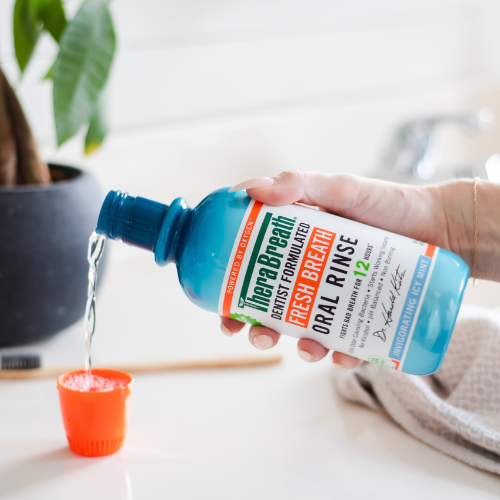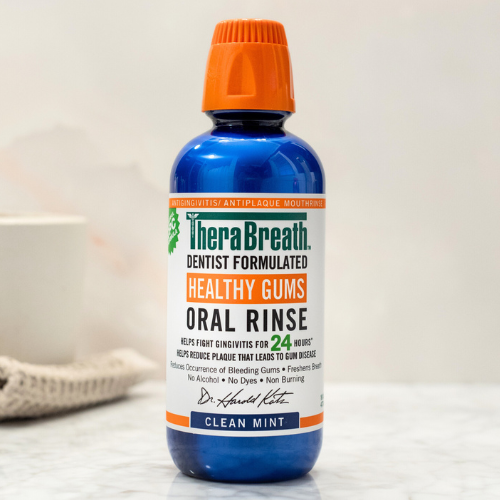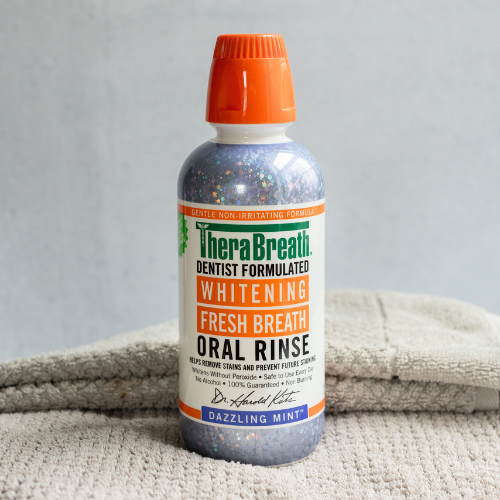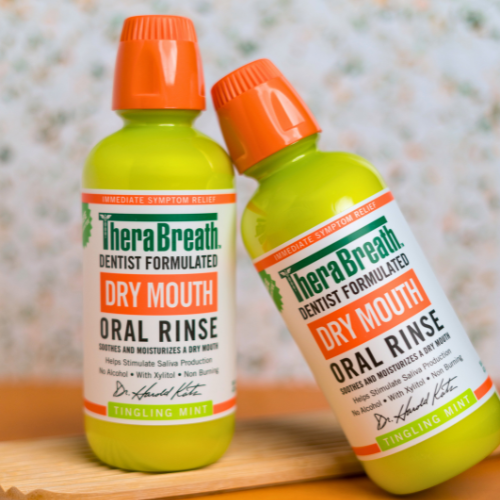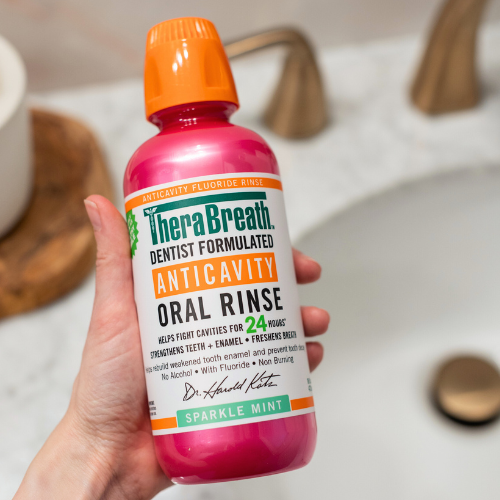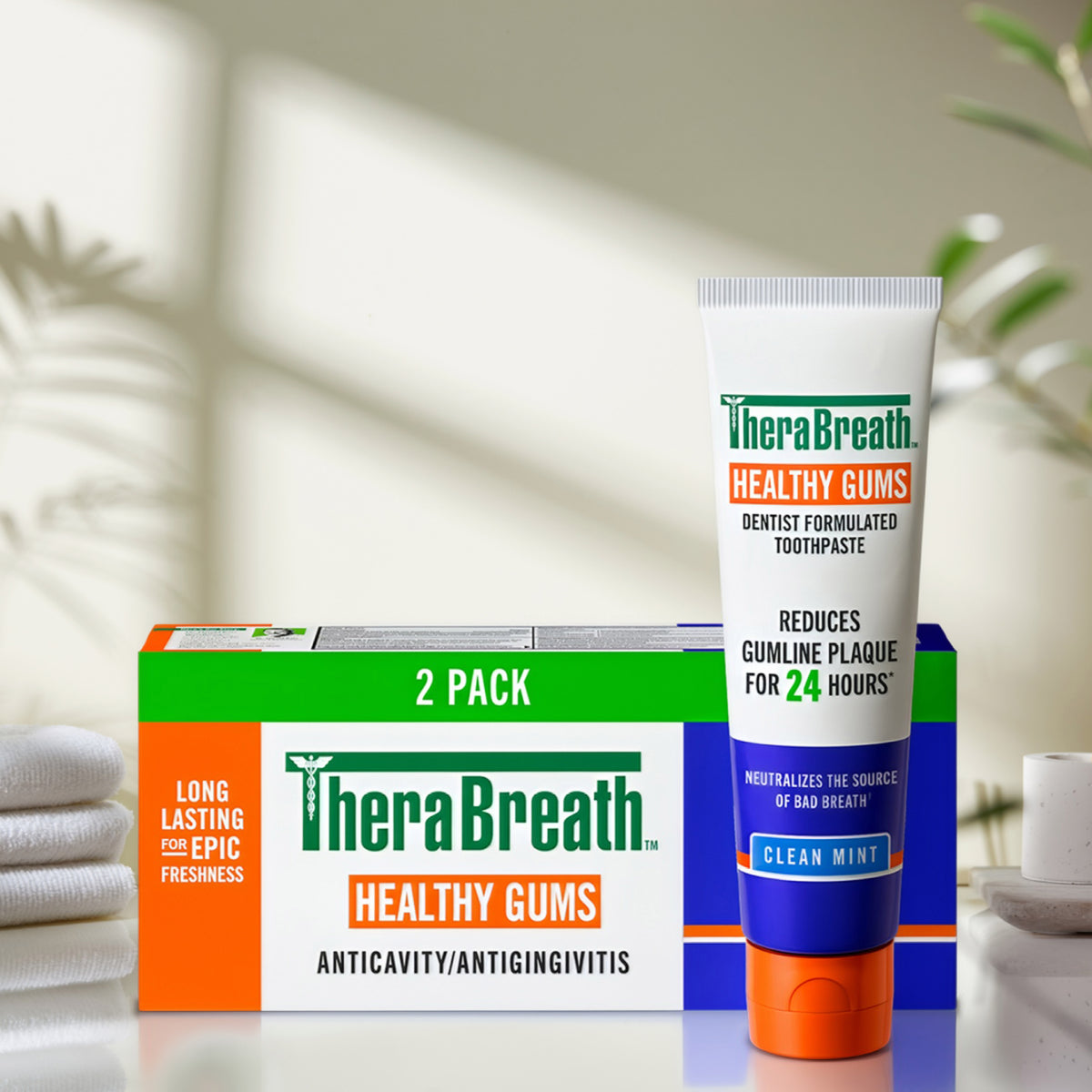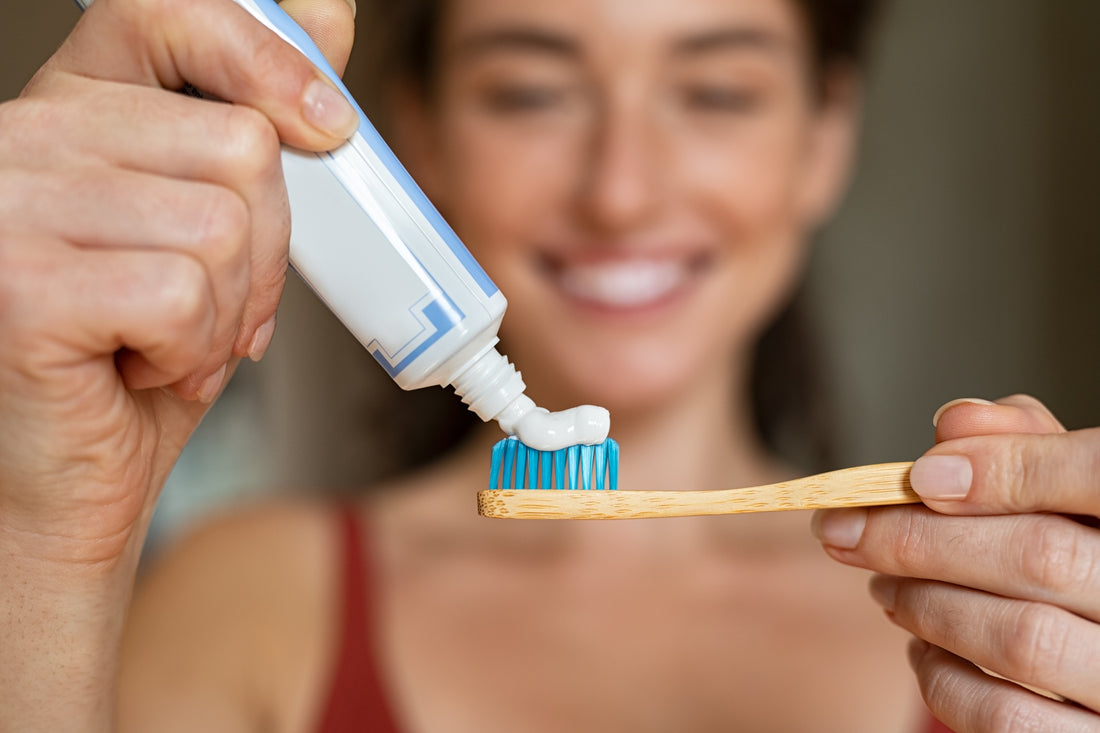
Best Toothpaste for Bad Breath
Share
As many sufferers know, chronic halitosis (bad breath) is an uncomfortable and embarrassing problem. It affects the person with the issue as well as others around them. Halitosis is often associated with morning breath, however, this chronic condition can strike at any time of the day or night. At work, at home, on a date, or with a spouse, bad breath can cause social anxiety and negatively impact self-confidence. If you’re suffering from halitosis and wondering how to get fresh breath, you’ve come to the right place. Read on to discover what causes halitosis, oral healthcare ingredients to avoid, and the best toothpaste and other oral care products to remedy this issue.
What is Halitosis?
Halitosis is a chronic condition that affects nearly 30% of the U.S. population. Bad breath impacts people in all parts of the world — females and males, young children, and older adults. The majority of cases are caused by anaerobic, sulfur-producing bacteria that breed beneath the surface of your tongue and often in the throat and tonsil area. The term "anaerobic" literally means living without oxygen, and in fact, these bacteria do not require oxygen to live. They occur naturally in the oral environment and aid in digestion by breaking down proteins into amino acids. As bacteria feast on proteins in your mouth, sulfur compounds are released from the back of the tongue and throat. Chemicals such as putrescine, skatole, and cadaverine are produced in the process, which all smell bad.
Different situations can encourage development of these bacteria, with the most common being dry mouth, mouth infections, illness, medical conditions, and specific foods and beverages. Chronic halitosis can be aggravated by diet, oral health conditions such as tonsil stones, oral hygiene methods, smoking, drinking, and medications that cause dry mouth. Bad breath often disappears temporarily after brushing, flossing, and gargling with a specialty mouthwash, therefore it can be difficult to measure the severity of the condition.
Halitosis Remedies
If you’re suffering from bad breath, it’s important to follow good oral hygiene. That means flossing, brushing, and gargling every day, carefully and thoroughly with the right products. Dietary changes can also improve bad breath and create a healthier oral environment that fights odor-causing bacteria. Properly brushing your teeth, gums, and cheeks helps to ensure that all food and bacteria are thoroughly removed. Using an automatic toothbrush is a great way to remove more food, plaque, and biofilm accumulations. In addition, anyone suffering from halitosis should follow up with a gentle tongue scraper or cleaner and a specialty mouthwash because these products are more effective at removing bacteria than a toothbrush alone.
Toothpaste Ingredients to Avoid
Many traditional toothpaste companies tout their products by mentioning fluoride and whitening ingredients. These ingredients are fine and not a problem for halitosis, however, other ingredients commonly used in these toothpastes are counterproductive to eliminating bad breath. These include alcohol, sodium lauryl sulfate, sodium saccharin, and sodium carboxymethyl cellulose. Alcohol and sodium lauryl sulfate are drying agents that ultimately aggravate bad breath by causing dry mouth. When your mouth is dry, this prevents anaerobic bacteria from being flushed out of the mouth. Sodium saccharin is used in thousands of consumables as a sweetener. While it isn’t abrasive, it serves no purpose other than to give toothpaste a pleasant taste and may contribute to the diabetic response in glucose-sensitive individuals. The other ingredients have extremely abrasive qualities that may provoke the development of oral diseases such as mouth ulcers, canker sores, gingivitis, and periodontitis. All of these conditions are linked to bad breath.
Dentist Recommended Toothpaste
Oxygenated toothpaste and mouthwash made with non-abrasive, natural antibiotic ingredients are your best option when dealing with bad breath. TheraBreath toothpaste is free of artificial colors, flavors, saccharin, and alcohol. Instead, these dentist-formulated and recommended toothpastes contain gentle yet effective ingredients including:
- Aloe barbadensis leaf juice
- Charcoal
- Essential oil of peppermint
- Glycerin
- OXYD-8
- Sodium fluoride
- Spearmint leaf oil
- Water
- Xylitol
Unlike the harsh ingredients used in many other toothpastes, the above ingredients aren’t abrasive or foaming agents. They all help enhance the flow of saliva in your mouth, thereby resulting in a moist, oxygenated environment counterproductive to the growth of anaerobic bacteria.
Developed by TheraBreath Founder Dr. Harold Katz, OXYD-8 is a highly potent, extremely safe, pH balanced formula derived from sodium chlorite, stabilized through a proprietary method. This chemical has been used safely in water purification for more than 100 years.
Halitosis FAQs
How do anaerobic bacteria cause halitosis?
Anaerobic bacteria are odor-causing microorganisms that thrive by breaking down proteins into amino acids and gaseous byproducts. The smell of bad breath is often pervasive because it contains a number of notoriously foul-smelling compounds and volatile gases such as hydrogen sulfide, the compound responsible for rotten eggs; dimethyl sulfide, which produces a fishy odor; and methanethiol, a compound found in rotten cabbage, aged cheeses, and several other unsavory items.
Why does dry mouth cause bad breath?
When you have dry mouth, you produce less saliva. Saliva washes away the germs in your mouth, therefore less saliva production can lead to bacteria multiplying and releasing volatile sulfur compounds as a byproduct. The end result is waking up with terrible morning breath that can last throughout the day.
What health conditions cause bad breath?
While most cases of halitosis are caused by oral health conditions including chronic dry mouth, gum disease, tonsil stones, and poor oral hygiene, diseases impacting other parts of the body are a contributing factor. Certain systemic diseases affecting multiple organs and tissues such as diabetes, rheumatoid arthritis, metabolic disorders, and hypertension can induce non-oral bad breath. Moreover, if you take prescription and over-the-counter medications to treat certain health conditions, these can cause dry mouth and ultimately bad breath.
Why is sodium carboxymethyl cellulose a bad ingredient for bad breath?
In toothpaste, sodium carboxymethyl cellulose acts as a foaming agent and thickener. The foaming action doesn’t eliminate bad breath, but it does abrade sensitive oral tissues, causing them to slough away and become extra debris for bad breath bacteria to consume.
What’s the difference between gel and paste toothpastes?
Chemically speaking, gels are much smaller molecules than pastes, allowing deeper penetration below the tongue surface to eliminate bacteria and bad breath. Moreover, gels tend to be less abrasive than traditional toothpastes so they can be a better option for people with sensitive teeth.
How does TheraBreath Toothpaste with OXYD-8 fight bad breath?
OXYD-8 is stabilized and generates oxygenating power as soon as it enters your mouth. This groundbreaking compound stops bad breath bacteria from excreting sulfurous compounds by supplying generous amounts of oxygen to the mouth. The anaerobic bacteria responsible for bad breath can’t live in an oxygen-rich environment.
What is good for bad breath?
TheraBreath bad breath solutions attack the bacteria responsible for bad breath, leaving your mouth feeling fresh and clean. Choose from a wide selection of toothpastes, oral rinses, throat sprays, lozenges, and chewing gum.
Statements on this page have not been evaluated by the Food and Drug Administration. These products are not intended to diagnose, treat, cure, or prevent any disease. The material on this site is provided for informational purposes only. Always consult your healthcare professional before beginning any new therapy.
